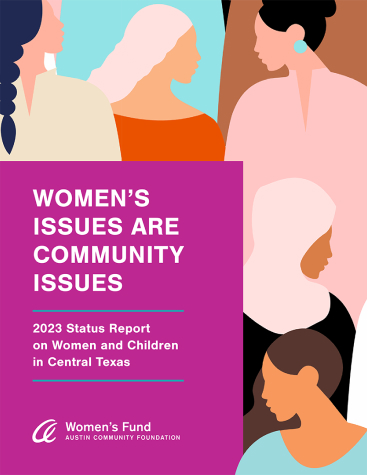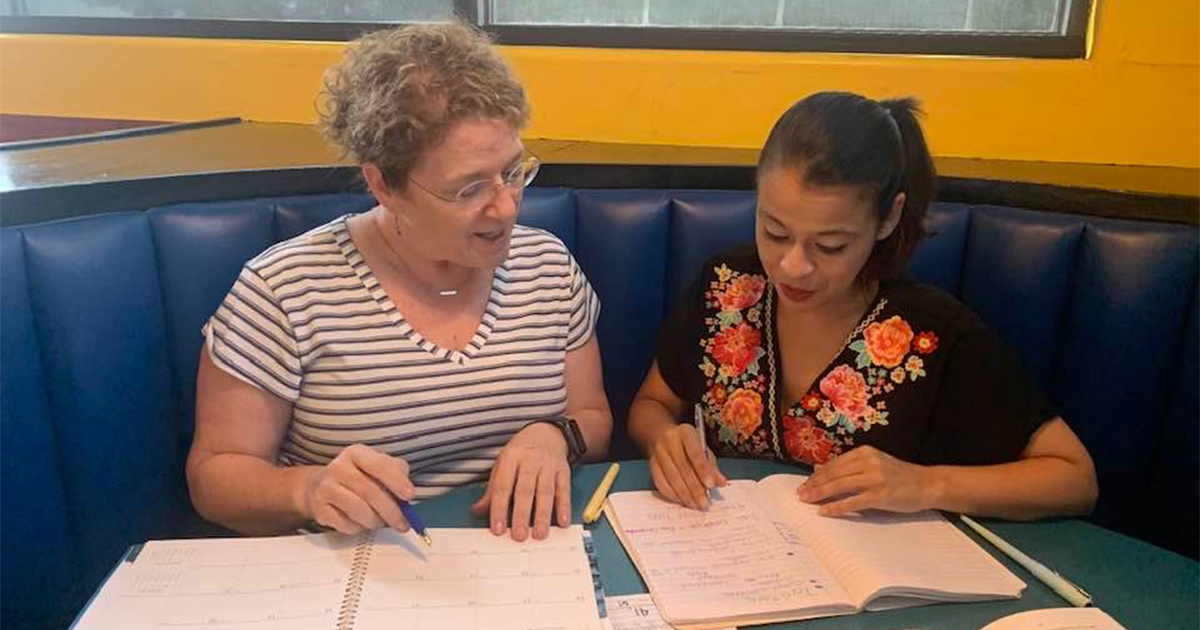As an investor in the Women’s Fund, I always tell people that we are data-driven and community-led. But what does data-driven mean, exactly? It means the Women’s Fund uses data to strategically invest in solutions that address the most pressing issues facing women and their families in our community. This approach has led the Women’s Fund to focus its grantmaking on the building blocks of a woman’s economic security: child care, education, housing, health, and unintended pregnancy prevention.
 Recently, the Women’s Fund published Women’s Issues are Community Issues, a status report that highlights the progress women have made over the past few years and the barriers they continue to face in achieving economic security. The report also digs into how the COVID-19 pandemic and racial justice movement have affected women.
Recently, the Women’s Fund published Women’s Issues are Community Issues, a status report that highlights the progress women have made over the past few years and the barriers they continue to face in achieving economic security. The report also digs into how the COVID-19 pandemic and racial justice movement have affected women.
The data continues to tell us that health is an essential component of the economic security of women. Without adequate, accessible, and affordable care, low-income women—especially women of color—and their families live one health crisis away from financial ruin. We reference this data over the course of our grant cycle to ensure the distribution of funding works to address health disparities like this. One of our most recent grant partners is Of the Earth Institute of Indigenous Cultures and Teachings, which was founded by a Lipan Apache Medicine woman who preserves and shares traditional indigenous medicines. The organization serves low-income women of color using culturally appropriate health services.
Another example of how the Women’s Fund uses data to inform impact is our investment in nonprofits focused on child care and education. One staggering data piece from the recent report is that 62% of children from low-income families were not considered Kindergarten ready. AVANCE Austin and Mariposa Learning Center are two grant partners that use a unique two-generation model to provide educational and wrap-around family support for low-income women and children. Both organizations use evidence-based strategies in their programs to enhance parent-child interactions and enable children and families to build social and economic capital. These organizations have cultivated measurable learning outcomes for the children and families they serve. AVANCE Austin has seen a 127% increase in parent employment, and 97% of the children they serve are prepared to enter school.
While reports like this help inform our approach to grantmaking, we recognize that data can only tell us so much. It’s also through community voice that we gain a holistic understanding of how the Women’s Fund can support nonprofits working to break the cycle of poverty in Central Texas. I invite you to learn more about the Women’s Fund and discover how you can help make an impact in the lives of women right here in our community.
Sujata Ajmera is a Women’s Fund investor and a member of the Steering Committee.


